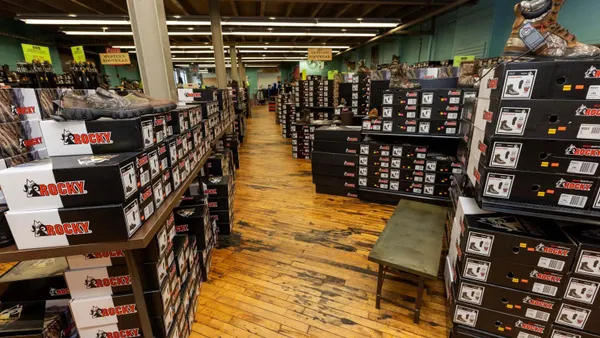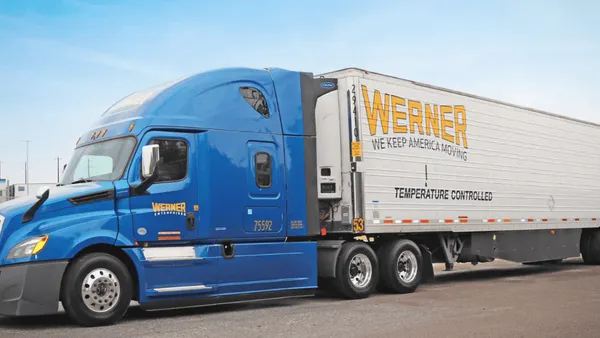Dive Brief:
- IKEA just launched a management program for its sub-distributors engaged in outsourced transportation for the company, Lloyd's Loading List reported Tuesday. The Swedish furniture and home furnishings chain is focusing on ensuring minimum wages, fair working hours and adequate rest times for all drivers.
- A recent condemnation by a Dutch court was issued for an IKEA road freight transport service contractor named Brinkman Trans-Holland, which was caught underpaying foreign truck drivers from affiliated companies eight times less than the legal Netherlandish rate.
- IKEA promptly held an audit of the contract line, and is also in talks with the International Transport Workers’ Federation, which works to eradicate exploitation from the European supply chain.
Dive Insight:
Growing concern over transport driver welfare is another link in the chain of transparency.
Supply chain abuses generally bring to mind underpaid factory workers in third world countries, but the reality is that they happen everywhere. One that's come to light here and overseas affects truck drivers, many of whom become entrapped in employer schemes and misclassification. Lawsuits regarding misclassification are becoming increasingly common, as evidenced by United Van Lines and California's Pacific 9, which not only prove costly in settlement fees but also in lost business as customers choose to disassociate with the brand.
Truck drivers are facing a changing landscape, where Hours of Service are not only tracked electronically but are also scrutinized by clients of the lines for which they drive. Though the industry is currently facing a 90% turnover rate, laws and regulations are growing increasingly stringent, which could be pushing some drivers out, and some drivers away from the field.
While truck drivers worry about unsatisfactory working conditions, companies are endeavoring to ensure they aren't violating the rights of their supply chain employees, because such a high truck driver turnover rate is untenable. IKEA's move suggests that the company is taking supply chain inefficiencies and problems seriously and knows that healthy, happy employees are more likely to create sturdier, profitable supply chains.












